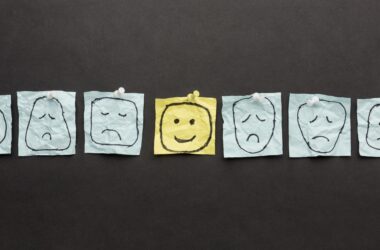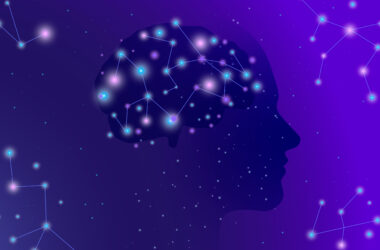Most people are aware of the harmful impact of sleep on mental health. There is a reason why someone who is upset is said to have “woken up on the wrong side of the bed.” It appears that this proverb includes some truth. Studies have found a link between sleep and mental health problems including anxiety, bipolar disorder, and other disorders. Furthermore, it has a direct impact on sleep and mental health. Researchers are now investigating the mutual relationship between sleep and mental health. While many factors contribute to these complicated issues, there is compelling evidence that enhancing sleep quality and addressing a variety of psychiatric diseases can both benefit mental health.
Why Sleep Matters for Your Mind
While you sleep, your brain activity alters as you progress through the many stages of the sleep cycle. Each stage enhances memory, learning, and reasoning by allowing activity to shift in different sections of the brain. This is healthy for the brain. Studies have also demonstrated that brain activity associated with sleep has a significant impact on mental and emotional wellbeing. When the brain receives enough sleep, particularly REM sleep, it is better able to deal with emotional information.
During sleep, our brains analyze and retain memories. Sleep deprivation appears to be particularly detrimental to the storage of positive emotional content. This is related to the severity of mental health problems, such as the possibility of having suicidal thoughts or acting on them, and it can alter mood and how you respond to emotions. Until recently, many believed that trouble sleeping was a sign of mental health issues. People are now questioning that premise. Instead, it is becoming obvious that sleep and mental health are inextricably intertwined, with sleep disorders potentially causing and affecting mental health problems. More research is needed to understand all of the numerous relationships between sleep and mental health, as well as how their complicated interactions might be influenced by a variety of personal characteristics.
The Science Behind Sleep and Mental Wellbeing
Your brain will alternate between two sleep stages during the night: non-REM sleep and REM sleep (rapid eye movement).
Brain Functions During Sleep Stages (REM & Non-REM)
The first part of the cycle is made up of four states of non-REM sleep. The first part happens between being awake and asleep. Light sleep is the second stage. During this stage, breathing and heart rate return to normal, and body temperature drops. In the third and fourth stages, you’ll be in deep sleep. People used to think that REM sleep was the most important part of sleep and mental health. But new study shows that non-REM sleep is actually more important for these tasks and is also the most restful and energizing part of sleep.
Some brain waves are the same during REM sleep as they are when you are awake, and your eyes move quickly behind closed lids. Our breathing speeds up and our bodies stop moving when we dream. After that, the cycle starts all over again, but this time you stay in REM sleep longer and spend less time in stages three and four of deep sleep. You’ll probably go through it four or five times a night.
Emotional Processing and Memory Consolidation
Consolidating memories and processing emotions both require sleep and mental health. Research shows that while we sleep, our brain processes and remembers emotional events that happened while we were awake. Being strong and in charge of our emotions is made possible by this. Sleep stimulates the formation of new memories and the retention of previously acquired information, making it an essential component of brain health.
Sleep Deprivation and Its Impact on Mental Health
Chronic sleep deprivation has significant negative impacts on mental health. It impairs mental abilities including focus and decision-making, increases irritability, and makes it more difficult to control one’s emotions. People who experience chronic sleep deprivation are more prone to experience depression, other mental health concerns, and sleep problems. A major requirement for maintaining optimal mental health is getting enough restful sleep.
The Cycle: Sleep Issues and Mental Health Disorders
Mental Health Conditions Affecting Sleep
Various mental health conditions might disrupt sleep patterns. Anxiety problems typically cause racing thoughts and difficulty sleeping or staying asleep. Depression-induced insomnia or hypersomnia can impair both daily functioning and sleep quality. Post-traumatic stress disorder (PTSD) symptoms may include nightmares and chronic sleep interruptions.
Anxiety and Racing Thoughts Leading to Insomnia
Anxiety often makes it hard to relax and fall asleep because it makes your mind race with fears and thoughts. Focusing on deep breathing, being mindful, and making a relaxing bedtime habit can all help lower stress and get better sleep.
Depression Causing Fatigue and Difficulty Waking Up
They frequently awaken feeling agitated due to their fatigue, which is a symptom of depression. One can manage the sleep disturbances associated with depression through the implementation of a consistent sleep schedule, regular physical activity, and the acquisition of relaxation techniques.
PTSD and Nightmares Disrupting Sleep Patterns
PTSD-related nightmare ideas and visions can exacerbate sleep and mental health issues and make it difficult to fall asleep. Seeking professional assistance, such as trauma-focused therapies or cognitive-behavioral therapy (CBT) for insomnia, can help improve your overall quality of sleep when you struggle to fall asleep due to post-traumatic stress disorder (PTSD).
How Sleep Problems Worsen Mental Health Conditions
Problems with sleep and mental health are connected in a complicated way that makes each other worse. Sleep problems can make mental health problems worse and make it easier for new ones to start. To break this pattern and improve general health, you need to learn good sleep habits, get help for underlying sleep disorders, and get the mental health care you need.
Reduced Emotional Resilience
Your emotional resilience may suffer if you don’t get enough sleep. Because they could take longer to recover from these experiences, people may become more agitated and prone to mood fluctuations.
Heightened Negative Thoughts
More negative thoughts tends to accompany poor sleep. Persistent negative thinking can have a negative impact on one’s outlook and mental health.
Decreased Ability to Cope with Daily Challenges
It’s important to get enough sleep to keep your thoughts clear and your ability to deal with things strong. Some people may find it hard to deal with daily problems when they don’t get enough sleep, which can lead to stress and overwhelm.
Prioritizing Sleep for Better Mental Health
The first step towards improved mental health is realizing the significance of sleep. Your general disposition, cognitive capacity, and ability to control your emotions will all benefit from a regular sleep schedule.
Creating a Healthy Sleep Routine
Getting into a regular sleep routine is the best way to relax and sleep and mental health better. Like these
Lifestyle Habits for Better Sleep
Limiting screen time: Reduce your screen time before bedtime to get a better night’s sleep.
Regular exercise: Consistently participate in physical exercise, but refrain from vigorous workouts prior to nighttime.
Healthy eating habits: Steer clear of heavy meals and stimulants like caffeine right before bed.
Comfortable sleep environment: Setting the right temperature in the room and making sure the bedding is comfortable can help you relax and fall asleep.
Seeking Professional Help for Sleep Problems
If your sleep problems don’t go away even after you try changing your habits, you should see a doctor. Sleep specialists can recognize and treat sleep disorders to guarantee that people get the finest sleep possible and maintain their mental health.
Conclusion
Making sleep a priority is vital for the impact of sleep on mental health. Individuals can improve their general mental health, boost their emotional resilience, and better deal with daily challenges by adopting appropriate sleep habits, resolving sleep-related concerns on time, and seeking professional help when necessary.
FAQs
Every night, adults need seven to nine hours of sleep. Different people need different amounts of sleep. If you want to have the best mental health, you should make sure you get enough sleep and listen to your body.
Yes, it is true that chronic sleep deprivation can exacerbate mental health issues like stress, anxiety, depression, and mood swings. A healthy sleep schedule is essential for maintaining mental well-being.
Symptoms of poor sleep include mood fluctuations, irritability, difficulty concentrating, persistent fatigue, and changes in appetite or weight. If you experience these symptoms, it is vital that you address your sleeping habits and, if required, seek professional help.





